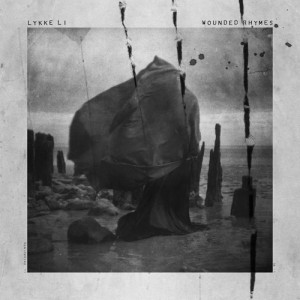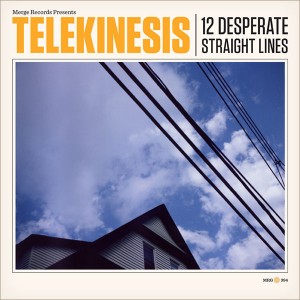Lykke Li – Wounded Rhymes
If the title didn’t already foreshadow this, Lykke Li has made a noticeable shift to a darker sound in general. The lyrics have reached a point of seriousness that can lead one to believe that this band doesn’t want to be mistaken as just a girly and cute throwaway kind of music. Lykke Li, hailing from Sweden, looks to prove that she can produce mature and progressive songs on this sophomore release.
Starting out on “Youth Knows No Pain,” you can see the immediate shift in this darker direction. While the bubbly organ jumping in and out may not convey this right away, when Lykke chimes in with her sassy voice, telling you to live things up while you can, because the “Youth [that] knows no pain” will soon grow old, you can feel the sense of urgency. On the second track “I Follow Rivers,” the group dabbles in the form of drastic ups and downs. It begins mildly quiet, but then dives right into a full energy chorus that carries the jangly tune.
Changing things up from the bouncy first two tracks, on “Love Out of Lust,” the band sounds anthemic, once again urges their audience to take advantage of the time at their hands before its gone; “dance while you can.” From here, if it wasn’t felt before, is from where the newfound profundity really takes off. Yes, the same fundamental sound is there: the bittersweet vocals of the front woman herself, the amiable bass lines, some electronic elements and the overall ability to make you move. When Lykke chants “I’m Your Prostitute,” on “Get Some,” it’s clear to see that she is reaching farther than before. She wants to make a statement with her music that is as equally as meaningful as listenable.
On Wounded Rhymes, Lykke Li does just that, the songs are enjoyable and catchy, but they don’t just stop there. Instead they progress into tracks that can become statements, driven by the desires of the band itself. However, this seriousness makes for a bland number of songs after “Sadness is a Blessing” brings forth the line that dubbed the album. The loss of playfulness that makes this band is absent here, and it makes for an anti-climactic close. While “Jerome” tries so hard, it doesn’t fit in with the songs that came in the beginning and it sort of feels as though she just gave up with the end.
As disappointing as this is, I don’t think it ruins the whole album. The first seven songs are solid and groundbreaking in this new I’m-a-big-girl-now-take-me-seriously style. For the most part, Lykke accomplishes what she set out to prove.













